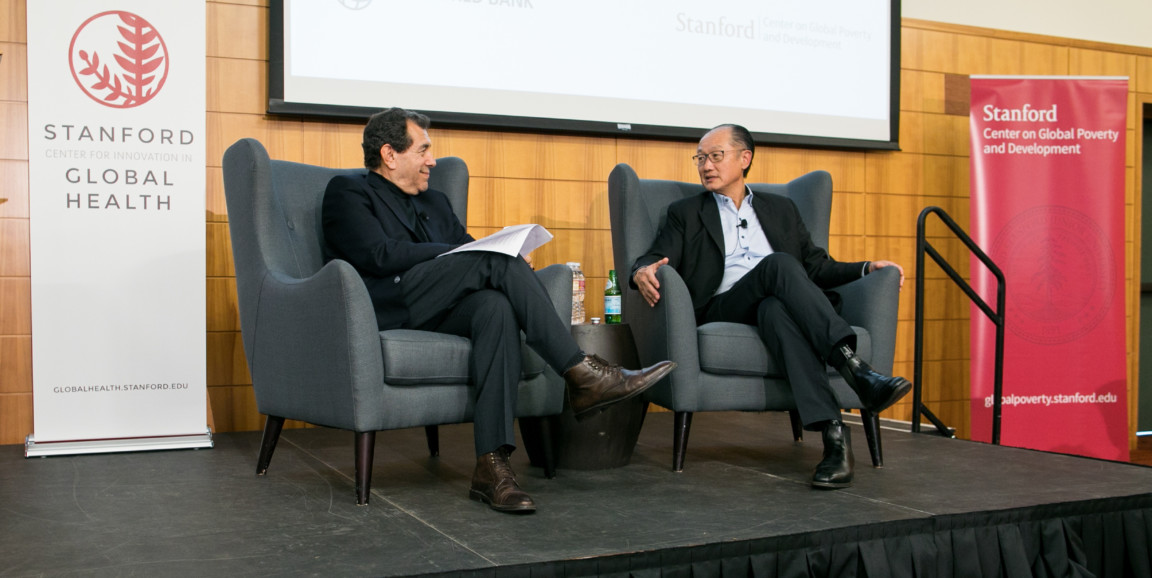Jim Yong Kim, MD, PhD, had a simple if surprising answer when asked the key to his storied career.
“Humility,” said Kim, who is president of the World Bank Group.
A physician and medical anthropologist, Kim was still in medical school when he co-founded Partners In Health, an international nonprofit that works with poor communities on four continents. For a second act, he served as director of the World Health Organization’s HIV/AIDS department. And for a third, he became president of Dartmouth College. And from there, he took the lead at the World Bank.
His accolades and accomplishments are numerous, but Kim said his strategy has remained the same: bring experts in and ask a lot of stupid questions.
“It’s important to have humility about what you know and what you don’t know,” he told the crowd of nearly 200 undergraduates, medical students and faculty members who attended the Conversation in Global Health. “And it’s important to believe you can learn.”
Paul Wise, MD, a senior fellow at the Freeman Spogli Institute and a core faculty member for the Center for Innovation in Global Health, interviewed Kim on stage.
As an anthropology student, Kim learned to formulate the right questions. And as a medical student, he learned to rely on evidence-based solutions. He said he continues to draw about both skills in his current gig where he tries to make the global financial system work for the poorest communities.
“This is the system that exists so how can we make it work for the poorest?” he asked, when discussing the global pandemic insurance the World Bank Group introduced this year. “Rich people insure themselves against everything and poor people are insured against almost nothing.”
Last year, working with the governments of Japan and Germany, ministers of finance from G7 countries and the World Health Organization, the World Bank developed the Pandemic Emergency Financing Facility, a financing mechanism that provides funds for rapid response to a large-scale disease outbreak.
“We host these conversations with leaders like Dr. Kim for this very reason,” said Michele Barry, MD, senior associate dean for global health. “We invite experts to campus to inspire students who are interested in global health and to show them equity in global health demands collaboration that crosses boundaries with public and private sectors, non-government organizations and academic institutions.”
The conversation continued on the courtyard outside the formal presentation as students took Kim’s advice. Students peppered him with questions and listened intently until the sky was dark.
Photo by Holly Hernandez




